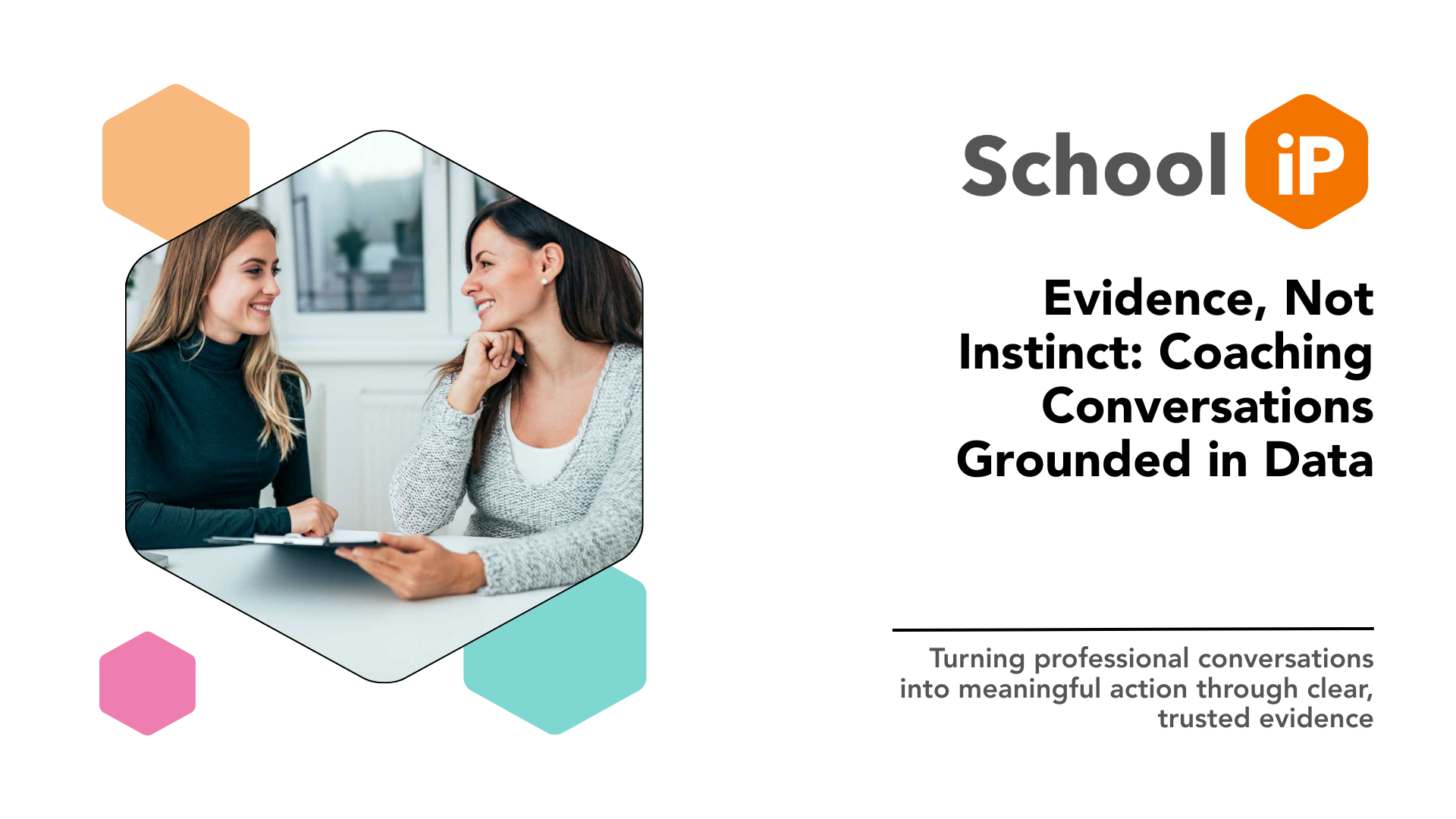Evidence, Not Instinct: Coaching Conversations Grounded in Data


It’s easy to assume we know how someone is performing, especially when we’re experienced. But when coaching and professional reviews rely more on instinct than evidence, conversations can quickly become vague, unproductive, or even confrontational.
The most effective coaching conversations are grounded in facts. Not in judgment, but in understanding. And not just top-down data, but self-reflection and evidence that the staff member owns and contributes to.
When staff understand the evidence behind their development, three things happen:
They feel more confident engaging in professional conversations.
They can reflect more clearly on what’s working and what’s not.
They are more likely to take ownership of their next steps.
As Sue Atkinson shared in our recent SchooliP webinar:
“The evidence really starts with self. It starts with the individual person... What is that person doing and how do they know that they're doing a good job or not?
This approach shifts conversations from being judged to understanding impact, which is a powerful driver of growth.
Effective coaching draws on multiple sources of evidence. At John Taylor Free School, Sue recommends three key layers:
Staff reflections
Personal targets and actions
Classroom work and planning
Observations of their own practice
Subject or pastoral reviews
Moderation exercises
Feedback from students or parents
Shared improvement plans
CPD participation
Safeguarding logs or wellbeing trends
Assessment outcomes
Contribution to wider school goals
When these sources are clear and accessible, the coaching conversation becomes focused, fair, and forward-thinking.
Avoid:
"Why aren’t you meeting expectations?"
Try instead:
"What does your recent subject review tell you about your impact in the classroom?"
"What’s the evidence telling us about progress in this area?"
"What changes have you made since the last cycle, and what’s worked?"
This style builds clarity, reduces anxiety, and allows for professional challenge that is constructive, not personal.
SchooliP brings together all the elements needed for rich, evidence-based conversations:
Individual staff portfolios where teachers and support staff can log reflections, CPD, lesson evidence and more
Subject and team review templates that track progress and feed into line management meetings
Whole-school monitoring that links performance, development, and outcomes
Professional review cycles that combine evidence, coaching questions and agreed actions in one place
This reduces the need for multiple systems or last-minute paperwork. Everything is in one place, ready to inform discussion.
Data doesn’t remove the human element from coaching, it supports it. When used well, it provides clarity, structure, and shared understanding.
By grounding coaching in evidence, schools move away from gut instinct and toward fair, purposeful conversations. And when platforms like SchooliP bring that evidence together, coaching becomes not just more effective, but more empowering for everyone involved.